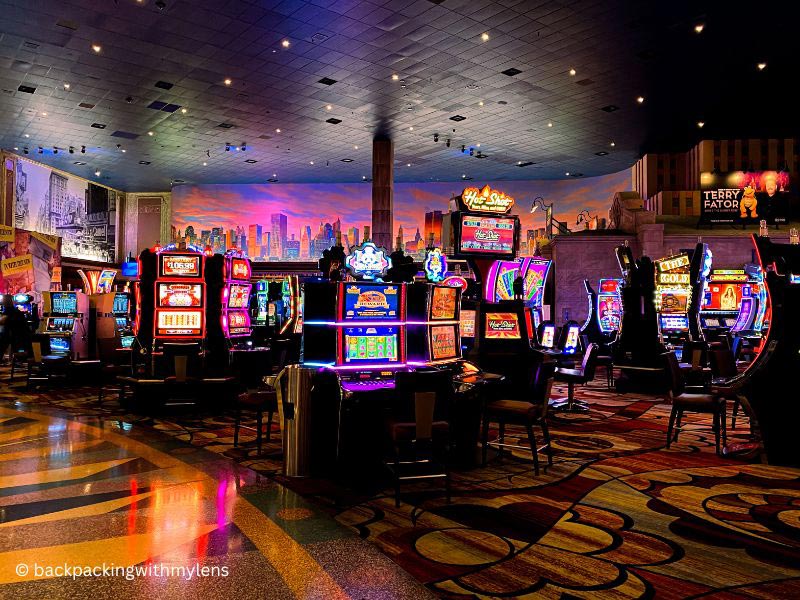This appeal of casino-related activities has mesmerized millions around the globe for centuries. game bài From the spinning wheel of fortune to the sound of dealing playing cards, the thrill of fortune and expertise intertwines to create an thrilling environment that draws players in. These activities are not just pastimes; they have grown into an integral part of the entertainment industry, evolving into a global phenomenon that spans luxurious resorts, vibrant internet casinos, and everything in between.
As the demand for one-of-a-kind and engaging encounters keeps to expand, the tales behind the triumph of gambling games reveal a intriguing realm. Entrepreneurs and creators are constantly extending the frontiers of innovative thinking and innovation, causing the rise of fresh gaming options and interactive technologies. Investigating these stories gives us understanding into the effort needed to create a gambling enterprise and the dedication that propels those operating behind the scenes.
The Development of Casino Games
Gambling games have a robust past that dates back centuries, with their origins often connected with historic ceremonies and social gatherings. The earliest forms of betting can be traced back to long-ago Chinese civilization, where games involving dice were enjoyed, and even to the Romans who enjoyed betting on various events. Over time, these rudimentary forms of entertainment evolved into more organized forms, resulting in the creation of games such as baccarat and roulette in the 17th century. These initial gambling games laid the foundation for the field we experience today.
As society progressed, so did the complexity and variety of gambling options. The 19th century marked a significant turning point with the founding of formal casinos in places like Monte Carlo and Las Vegas. This era saw the rise of well-known games such as poker and blackjack, which fascinated the interests of players around the world. The surge of these games was driven by advancements in game design and the development of gambling laws that made the industry more structured and attractive to the general populace.
The technological revolution in the late 20th and early 21st centuries transformed the landscape of casino games yet again. The introduction of the internet resulted in online casinos, enabling users to play their preferred games from the convenience of their homes. This shift not only expanded the reach of casino games but also introduced new formats like live dealer games and mobile gaming apps. Today, the casino game industry continues to progress, with innovative technologies such as virtual reality and blockchain expected to change the coming years of betting.
Successful Game Development Strategies
The cornerstone of a successful casino game empire lies in the design of captivating and creative games that enthrall players. A effective strategy involves extensive market research to comprehend existing trends and player preferences. By reviewing user feedback and observing high-performing titles, developers can identify what resonates with players and what features are in need. Adding distinctive themes, multifaceted game mechanics, and artistically appealing graphics are vital to differentiate in a challenging landscape.
Collaboration is another key element of successful game development. Bringing together talented designers, programmers, and mathematicians ensures that games are simultaneously visually impressive but also equitable in terms of gameplay. Encouraging honest communication among team members promotes creativity and results in cutting-edge concepts. Moreover, engaging with players during the beta testing phase permits developers to gather insightful insights that can fine-tune gameplay elements before the official launch.
Lastly, efficient marketing strategies cannot be overlooked in creating a successful casino game empire. Developing a persuasive narrative around the game and utilizing digital media platforms to create excitement can greatly impact player acquisition. Offering deals, loyalty rewards, and engaging in community events can additionally enhance player retention. By combining strong development practices with savvy marketing, game developers can create an immersive experience that keeps players returning for further.
A Future of Gambling Play
The scene of casino gaming is evolving swiftly, driven by progress in tech and changing consumer tastes. Online and portable play is set to dominate the industry as more players seek accessibility and access. Augmented reality and virtual reality are also making their way into the casino experience, providing captivating settings that elevate traditional gameplay to a new level. As players crave more interactive and engaging interactions, casinos will need to change and innovate to keep their customers interested.
Additionally, the integration of artificial intelligence and data analysis will play a crucial role in defining the prospects of gambling games. Casinos will utilize data to comprehend player actions, tailor experiences, and enhance client service. Customization will become key, as players will want plays that modify to their tastes and play styles. As the gambling industry utilizes these insights, the development of new game types and elements will likely appear, keeping the casino experience fresh and stimulating for everyone.
Moreover, the trend towards responsible play is becoming increasingly important. As authorities and consumers focus more on player well-being, casinos will need to introduce measures that promote responsible gaming practices. This could include options that allow players to set boundaries on their spending and time spent playing, as well as better resources for those who may be dealing with gaming issues. By focusing on responsible gaming, casinos can build trust with their customers and ensure a lasting future in the competitive environment of gambling gaming.
